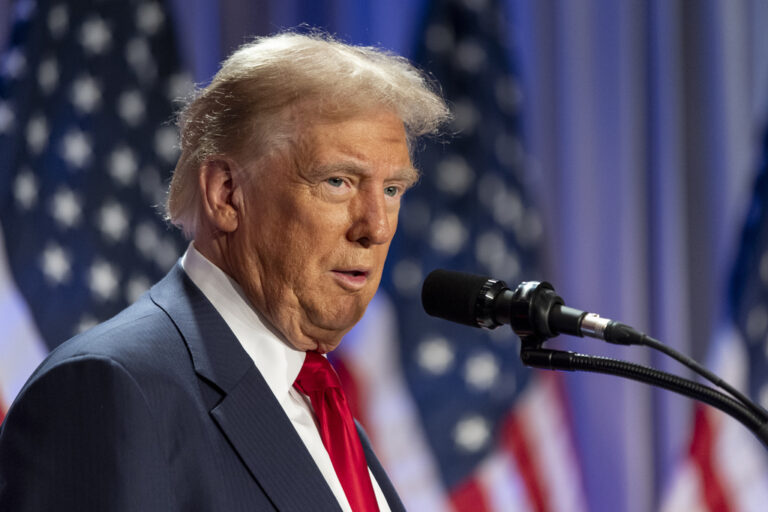 Trailing nearly 50 points in the polls as the New York City mayoral campaign enters its final two weeks, Republican Joe Lhota is ratcheting up his attacks on frontrunner Bill de Blasio.
Trailing nearly 50 points in the polls as the New York City mayoral campaign enters its final two weeks, Republican Joe Lhota is ratcheting up his attacks on frontrunner Bill de Blasio.
Lhota, a one-time deputy mayor to Rudolph Giuliani, has unleashed a new negative TV ad, so harsh that the de Blasio campaign dubbed it “fear-mongering” and other elected officials called for it to be pulled. He has also toughened up his rhetoric in the days before a potentially pivotal moment in the campaign, Tuesday’s debate.
“There’s an old Irish expression, ‘If you want to get an audience, start a fight,'” said Bill Cunningham, a former top adviser to outgoing Mayor Michael Bloomberg.
“De Blasio is dominating the media and the political landscape right now while some voters still don’t have a clear picture of who Lhota is,” Cunningham said. “If you’re the underdog, you have to land a few punches and back up the champ or you can’t win.”
Lhota’s significant shift in strategy comes on the heels of the campaign’s first debate last week, when the Republican appeared caught off guard by de Blasio’s aggressiveness. Eschewing the play-it-safe strategy that he’d used since winning the Democratic primary, de Blasio aggressively linked Lhota to the national Republican Party that was blamed for shutting down the federal government, a natural play in a city where registered Democrats outnumber the GOP by a factor of 6-to-1.
Not even 12 hours later, Lhota switched gears with an ad that used footage of a recent biker gang attack and black-and-white scenes of the city’s crime-filled past to suggest that a de Blasio administration would end New York’s decades-long drop in crime.
Lhota also toughened his language in his campaign speeches. Gone were the bizarre claims about de Blasio’s honeymoon to Cuba or his 1980s trip to Nicaragua to support that country’s left-wing government. They were replaced by an unwavering focus on public safety.
“There is no doubt in my mind that, under Bill de Blasio — including the people he’s thinking of making police commissioner — crime will go up,” Lhota said Wednesday on Fox, sharply delivering the attacks that appeared strangely muted during the debate.
De Blasio, the city’s public advocate, responded by saying that Lhota was employing scare tactics and deemed the ad “divisive and negative.”
Political strategists, however, see little choice but for Lhota to wage a full-on offensive, in part to reassure some of his backers who are growing increasingly nervous about his chances of victory in the Nov. 5 election.
Some of the usually Republican-friendly sectors such as Wall Street and the real estate industry have not backed Lhota. A political action committee formed to support Lhota has raised less money than a new one created to support de Blasio, and the Republican only has about $900,000 cash on hand, about half of what de Blasio has, according to the latest city campaign finance reports.
A strong debate performance could give Lhota momentum needed to bolster that fundraising, which would allow him to pay for a late TV ad blitz. Pundits suggested that Lhota could play up his own managerial experience — in addition to his role at Giuliani’s City Hall he led the region’s transportation agency through Superstorm Sandy last year — at the expense of de Blasio, whose public advocate office has an annual budget of just over $2 million. New York City had a budget of $70 billion.
“Lhota should say point to his resume and say, here’s what I’ve already done — this is the kind of work that a mayor does,” said Stephen Llano, director of debate at St. John’s University.
Another opening could be Gov. Andrew Cuomo’s declaration last week that he would not support any tax hike, which appears to jeopardize de Blasio’s signature proposal of raising rates on the wealthy to pay for universal pre-kindergarten.
“Lhota can press that, he can ask if (de Blasio) will abandon that idea or carve from the budget elsewhere? And if so, where?” asked Cunningham.
“He can make it uncomfortable,” Cunningham continued. “And he has little to lose.”
(AP)










